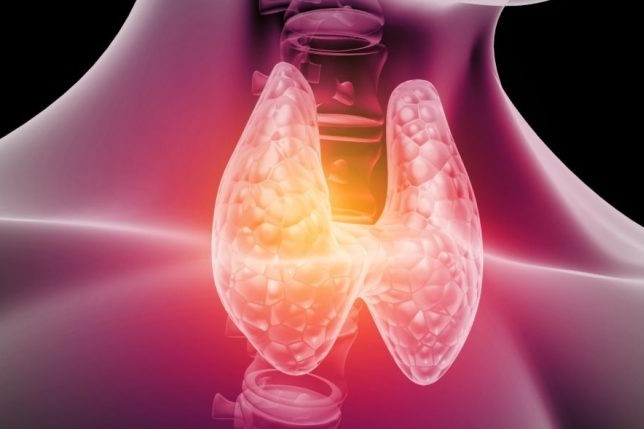
Symptoms and Treatment for Hypothyroidism
Hypothyroidism is a condition wherein the thyroid gland cannot release enough hormones to the bloodstream, resulting in various symptoms. Common treatments for an underactive thyroid is hormone replacement therapy and healthy lifestyle changes
Learn more about the causes of hypothyroidism and recognize the signs as early as possible.
What is Hypothyroidism
Hypothyroidism (underactive thyroid disease) is a disorder where the gland responsible for creating and releasing thyroid hormone does not make enough for the bloodstream. It can cause the person’s metabolism to slow down, affecting the whole body.
The thyroid is a small, butterfly-shaped gland that sits in the neck, just above the collarbone. Its primary function is to help regulate and use energy in nearly every organ of the body.
The thyroid controls many bodily functions, such as the heartbeat and digestive system. With not enough thyroid hormones in the bloodstream, the body’s natural process begins to slow down.
Recent studies show that around 14% of Australia’s older population suffers from a clinically relevant thyroid disorder, with 4% undiagnosed.
Hypothyroidism gets more common with age, and women are ten times more likely to get the condition. In fact, 1 in every eight women will develop an underactive thyroid later in life.
Extreme low levels of thyroid hormones in the body can even result in a life-threatening condition known as myxedema. It is the most severe form of hypothyroidism which can cause low body temperature, anemia, heart failure, unconsciousness, or sudden coma.
Myxedema is a severe condition that requires urgent medical attention.
In general, hypothyroidism is a treatable condition. Symptoms can be controlled with regular medications and lifestyle changes to address their side effects.
What Are the Symptoms of Hypothyroidism
An underactive thyroid progresses gradually and may fully develop over several years. A person with hypothyroidism may not experience multiple symptoms at the same time.
Here are some of the common symptoms:
- Fatigue or feeling of tiredness
- Numbness or tingling sensation in the hands
- Constipation
- Weight gain
- Soreness or muscle weakness
- High blood cholesterol levels
- Depression
- Dry, coarse skin and hair
- Unable to tolerate cold temperatures
- Physical changes in the facial area (droopy eyelids, puffiness in the eyes)
- Lower and hoarser voice
- Brain fog or forgetfulness
For most people, symptoms go unnoticed over many years.
The symptoms may become easily identifiable as the thyroid slows down its functions.
What Causes Hypothyroidism
The most common cause of hypothyroidism is Hashimoto’s thyroiditis.
It is an auto-immune thyroid disease that produces antibodies that attack and destroy the thyroid gland.
Other causes may include:
- Medical treatments (radiation and surgical removal of the thyroid)
- Iodine deficiency (Iodine is a mineral in the body that is used to create hormones)
- Hereditary disorders (history of medical condition in the family.
In some cases, the inflammation of the thyroid occurs after pregnancy (postpartum thyroiditis) or exposure to a viral illness.
Hypothyroidism When Pregnant
The thyroid hormones play an essential role in the fetus’s development while in the mother’s womb.
It helps in developing the baby’s brain and nervous system.
For hypothyroidism patients, it is crucial to control thyroid levels during pregnancy.
Lack of hormones during development stages may cause brain issues and other complications.
Extremely low levels of thyroid hormones may lead to miscarriage or preterm labour.
Treatment for Hypothyroidism
Standard treatment for an underactive thyroid involves daily use of synthetic T4 supplements (Levo-T, Levoxyl, Novothyrox, Synthroid, others).
These oral medications help restore hormone levels and attempt to reverse the effect of hypothyroidism.
The dosage should be re-evaluated and possibly re-adjusted from time to time by a healthcare professional until the proper level is established.
The person will likely feel better after starting treatment. Taking doctor-prescribed medications help lower cholesterol levels and may reverse any weight gain.
People with the disorder do not have a specific diet to follow. However, eating a balanced diet, monitoring soy intake, and consuming more fibre help cure hypothyroidism with diet.
Creating a diet plan also helps.
Read Also:
Emergency Live Even More…Live: Download The New Free App Of Your Newspaper For IOS And Android
Thyroid Nodule: Signs Not To Be Underestimated
Thyroid: 6 Things To Know To Get To Know It Better
Thyroid Nodules: What They Are And When To Remove Them
Thyroid, The Symptoms Of A Malfunctioning Thyroid Gland
Thyroid Nodule: What Is It And What Are The Symptoms?
What Should Be In A Paediatric First Aid Kit


